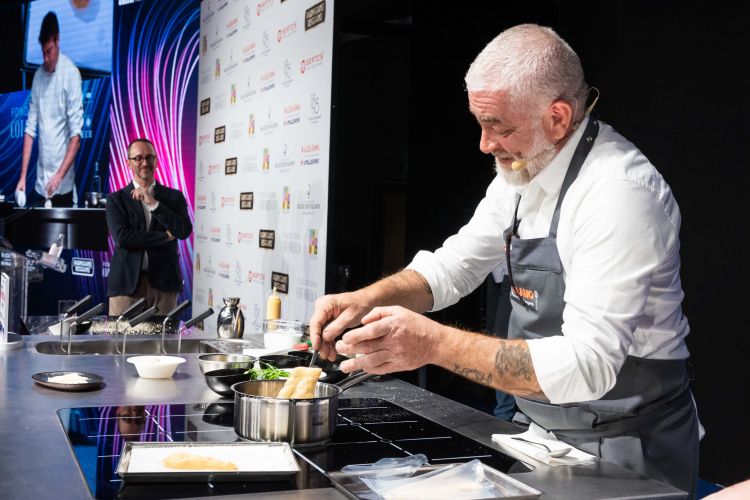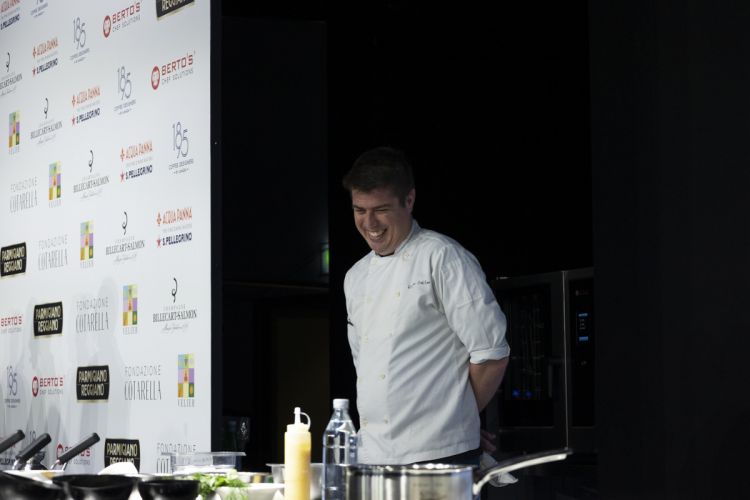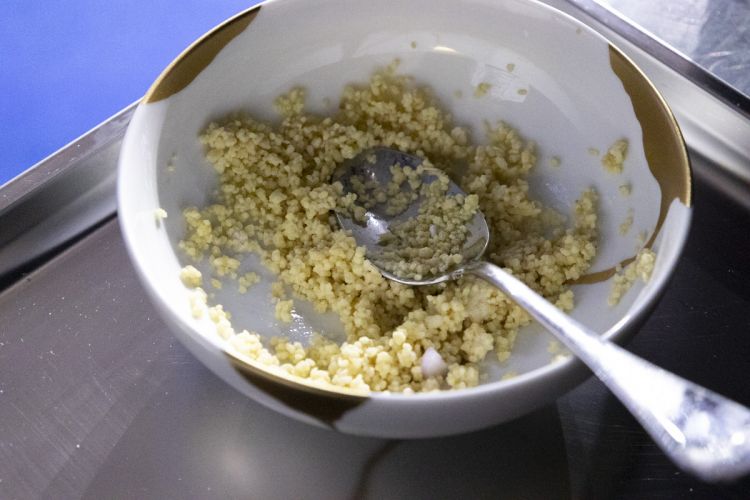“It’s been 15 years since Alex Atala presented his Fettuccine with palm heart at Identità Milano, a first taste from the Amazon rainforest. At the time, Brazil was beginning to become aware of its "ingredient" potential, and this is thanks to the pioneering work of restaurant D.O.M. in Sao Paulo, Brazil. And now the time has finally come to tell the world the new story of Brazilian cuisine, inviting that almost Eurocentric conviction of "gastronomic superiority" to loosen up and humbly abandon its throne”. These are the words of Federico De Cesare Viola, Director of Food&Wine Italia and moderator of Alex Atala's immersive talk in the Auditorium on the afternoon of Saturday 28 January. With Atala, as De Cesare Viola points out, comes a change of perspective and the spotlight shifts, moving south of the Equator. From the bowels of the Amazon, to the rest of the Planet, the Atala revolution continues.

Left Federico De Cesare Viola, Editor in chief of Food&Wine Italy and chef Atala (right) grappling with cassava
After all, no one would have imagined this, not even the chef himself: D.O.M. was born as a Brazilian restaurant to welcome Brazilians, yet in 23 years it has exported Brazil outside its borders, while the country's chefs are beginning to acquire the same visibility, respect, and attention of a chef from Italy, Peru or France, those many excellent cuisines to which one more is added: Brazilian cuisine. And as a result, if one hears more about Brazilian chefs, one will consequently also hear about the products they choose and, inevitably, the producers who bring them to light.
Alex Atala is a chef and will always be one; he has been a chef in his ability to rediscover ingredients, to create, to manage a kitchen, a restaurant, in its entirety, training new generations of chefs, as in the case of Rubens Salfer [aka Rubens Catarina for his country of origin, Santa Catarina], sous chef at D.O.M. with him at Identità Milano 2023.

Rubens Salfer, sous chef at Alex Atala's D.O.M.
Now, let's try to narrow the time frame and consider the last decade of D.O.M., during which many revolutions have taken place. Starting with the chef's profession itself: in the not-so-distant past, each restaurant jealously guarded its secrets and only a visit allowed, from guest to guest - to reveal a portion, accentuating the exclusivity of the restaurant experience. This until social media broke every lock and erased every secret: good or bad? Although not everything always goes right, we can consider this revolutionary trend as a good thing, as it fuels the circulation of ideas, recipes, products and the more you see around, the more people come. The more the revolution pushes on, we add.
But change also starts from within: therefore, you need research. And what space should be given to creativity, to inventing? First of all, let us clarify that creating and inventing are two words that are by no means interchangeable: the first means doing what everyone does, in a way that no one expects; the second, on the other hand, means bringing to light something that does not yet exist. So what to do? In the kitchen, the choice converges towards a third concept, namely, innovation, which is creativity with an attached utility. Just as the fax machine revolutionised human communication from one end of the world to the other, bringing about a real upheaval in everyday life, so must the kitchen. It cannot close in on itself; it must do something useful for many, not for the individual, so that the individual becomes collective; the exclusivity of knowledge, becomes pure sharing.
Let us remember that this refined reasoning originates in Brazil, in its heart, the Amazon rainforest, in the presence of an extremely rich, precious, biodiverse heritage, full of wonders, treasures, but in fact simple elements. “True luxury consists in the human ability to transform a product into emotion, so that guests won’t just eat, but sigh. And to do this through the poorest elements that Nature offers, like cassava and water, in which the creative direction of D.O.M. is immersed from head to toe.

Rehydrated cassava flour for bread baking
Two basic ingredients, as basic as wheat, potatoes, rice and maize are in Europe; from which a plethora of preparations, infinite possibilities can be made: thickeners for sauces or roux, stabilisers for ice cream, couscous, bread, exactly like the bread prepared by the native Indians: the peel is removed from the cassava root, then scraped and pressed until you obtain both a white liquid, and a full-bodied pulp. Mixing the fermented and the fresh pulp in equal proportions produces a very coarse flour. Add water and salt, pan fry quickly and you have a very simple bread ready to serve.
Atala concludes, “Everyone in the world knows the word 'cola' and everyone has a mental image of it. Well, there is another word that is just as well known and that is Amazonia; the difference is that hardly anyone has any idea what Amazonia tastes like.”
Today, that flavour seems to materialise for a moment on our palate; its texture fixes in our limbs as we store in our minds the guiding voice of a restless revolution, a warning for the near future: tradition should not be abandoned, only properly preserved. How? By evolving, with respect.
Translated into English by Slawka G. Scarso